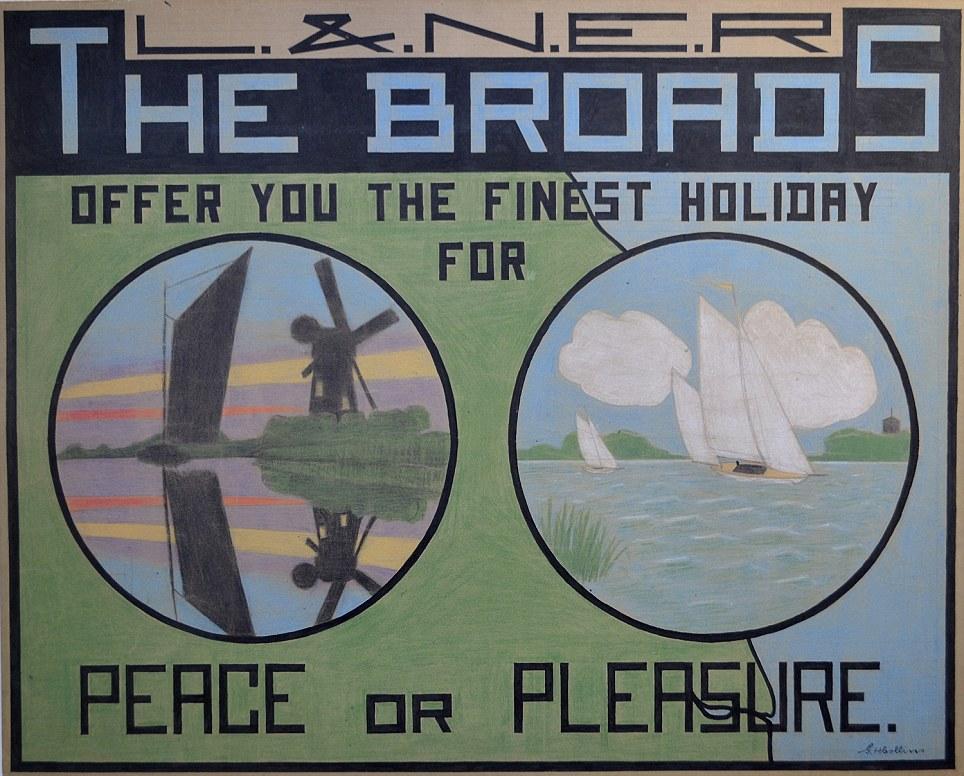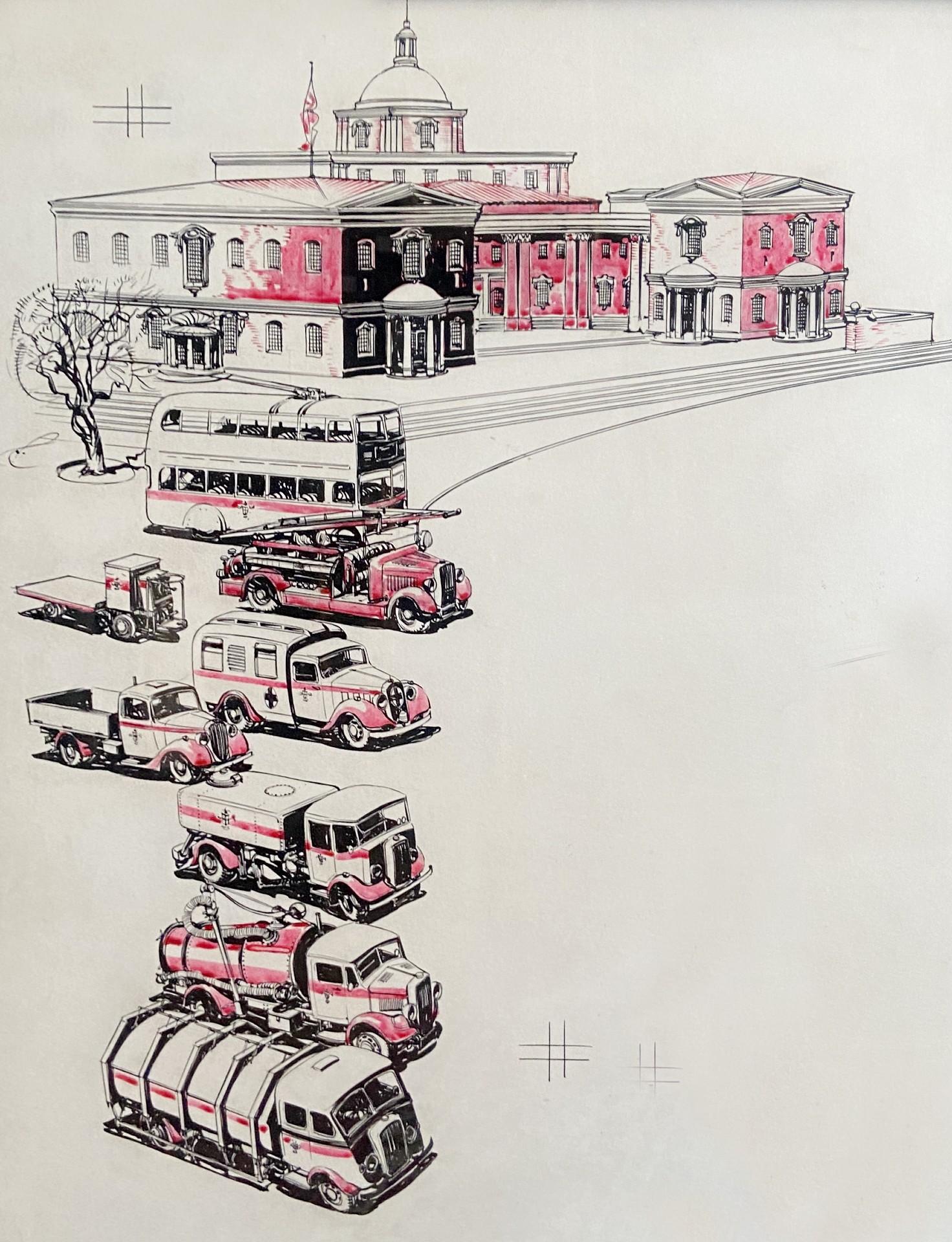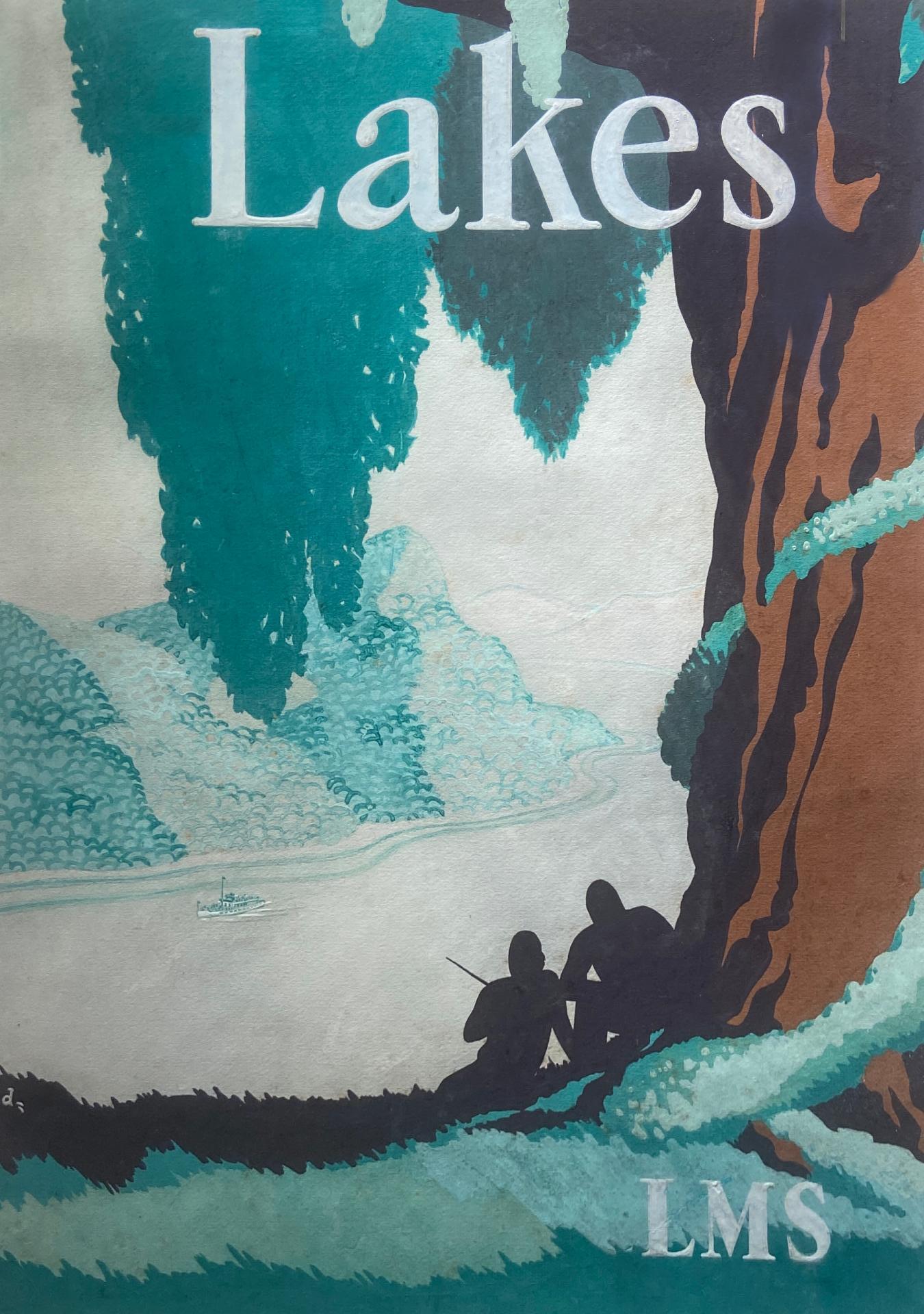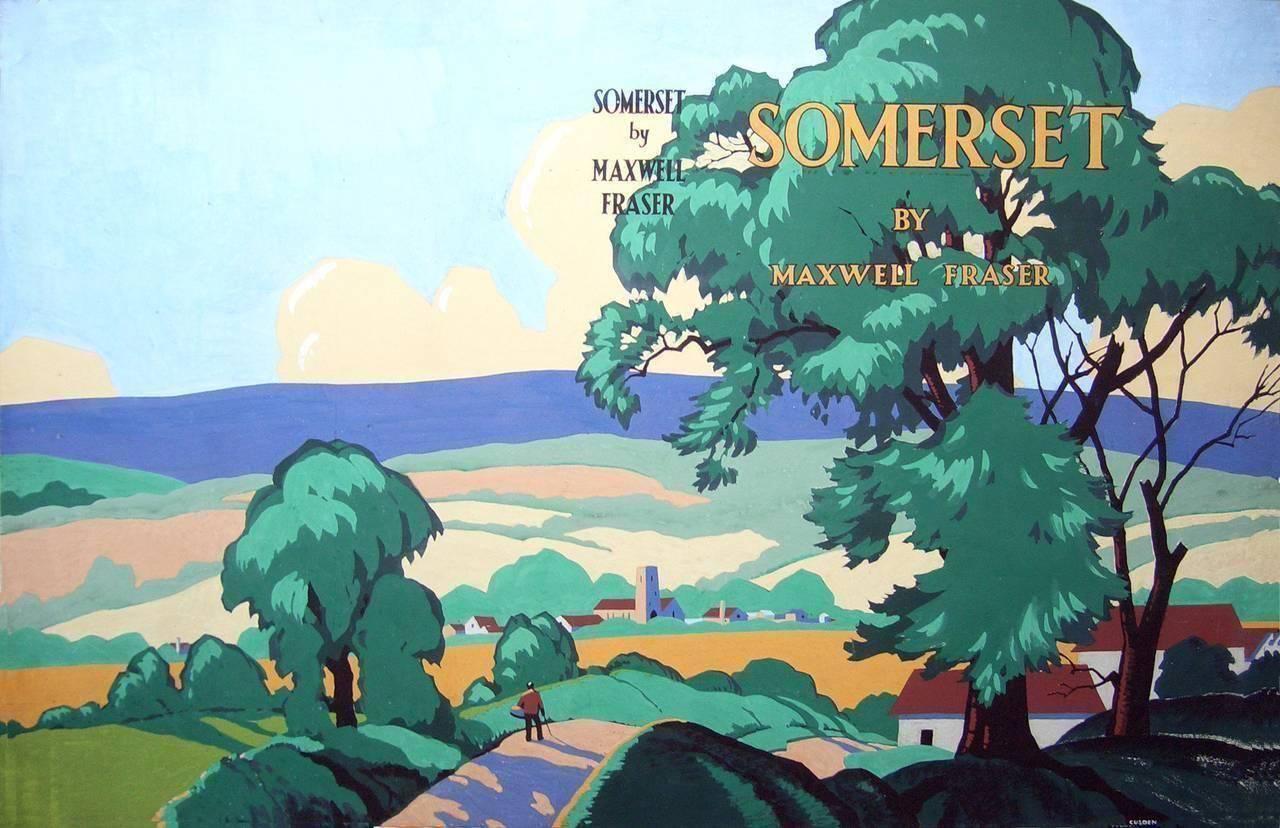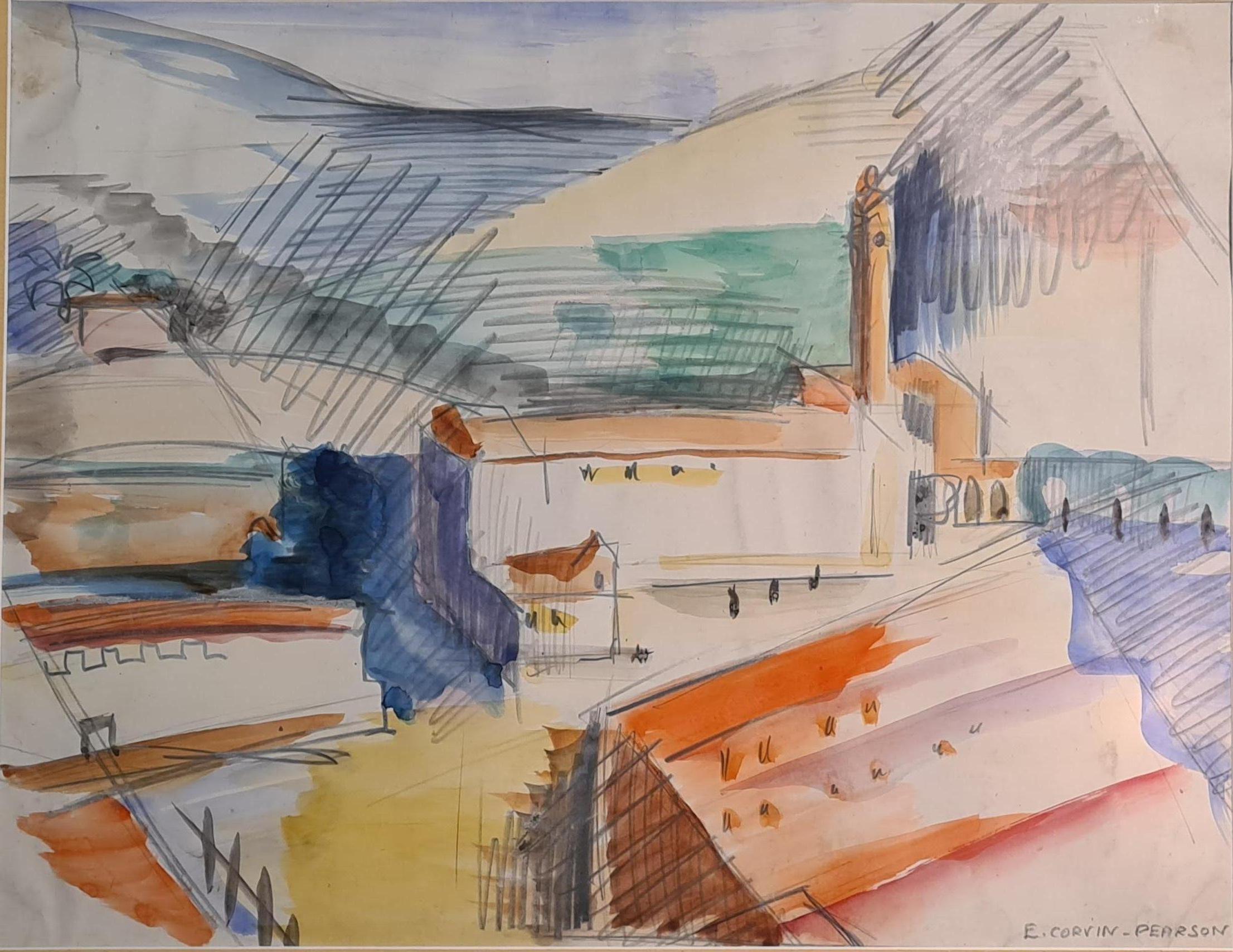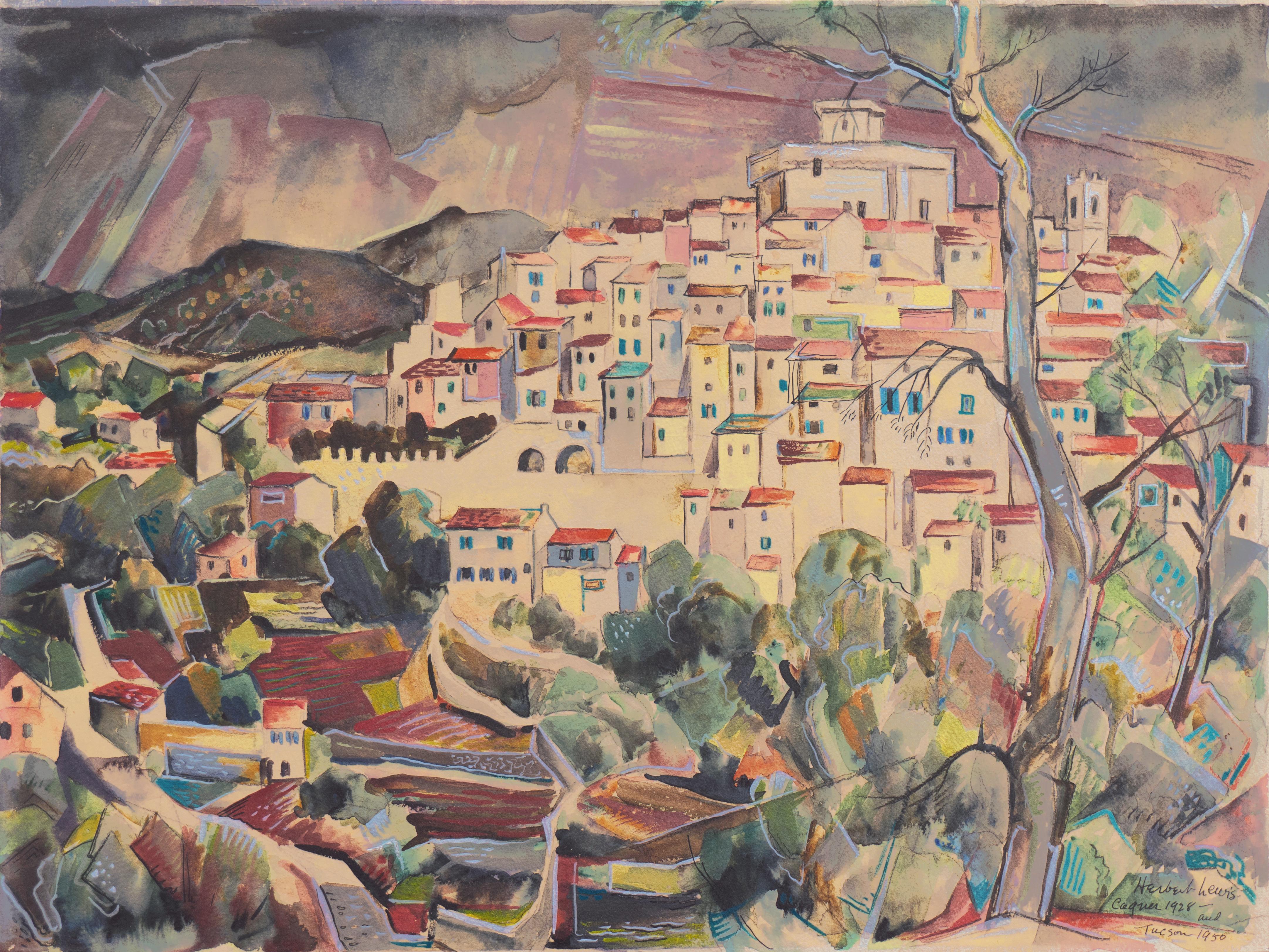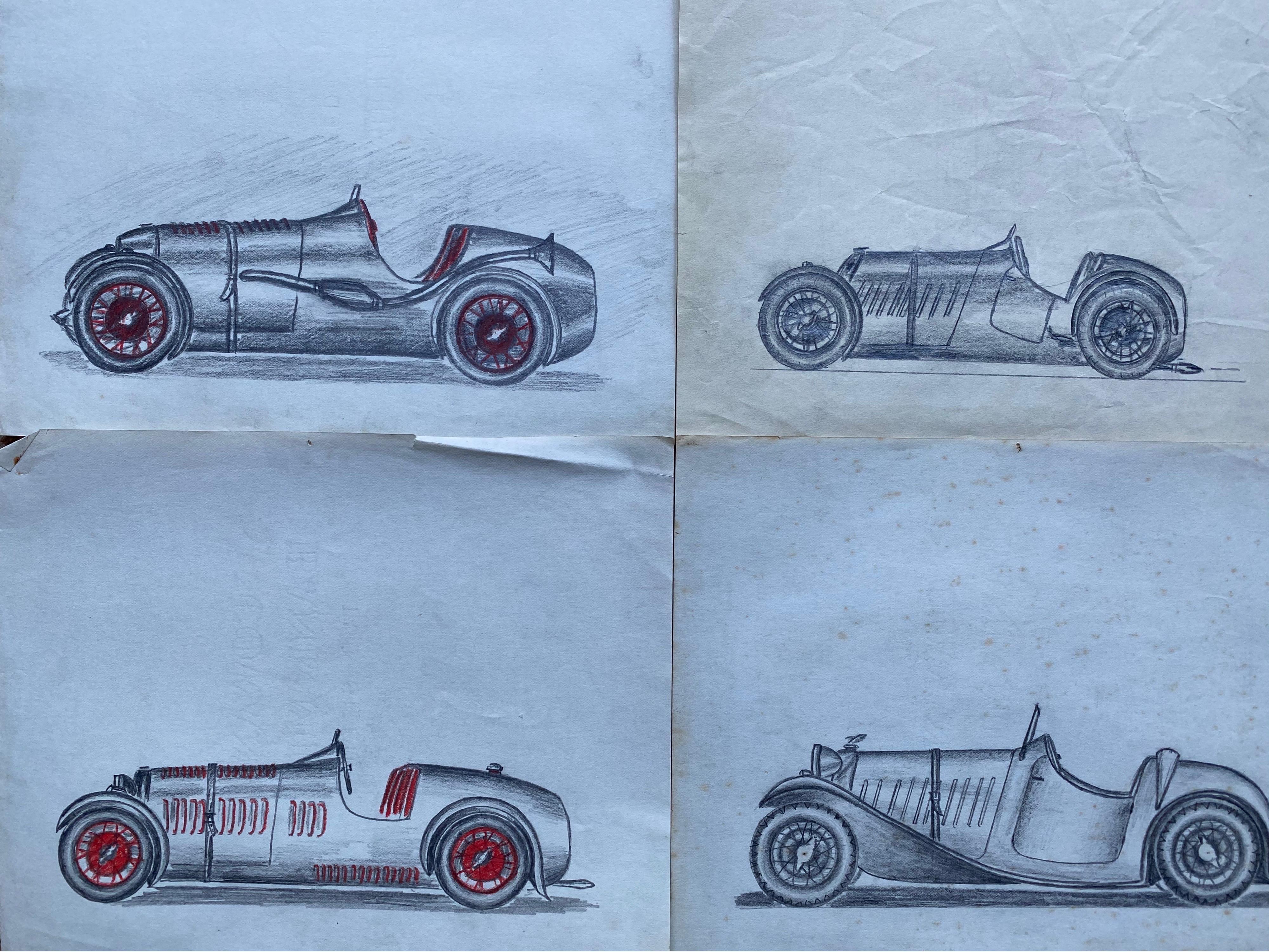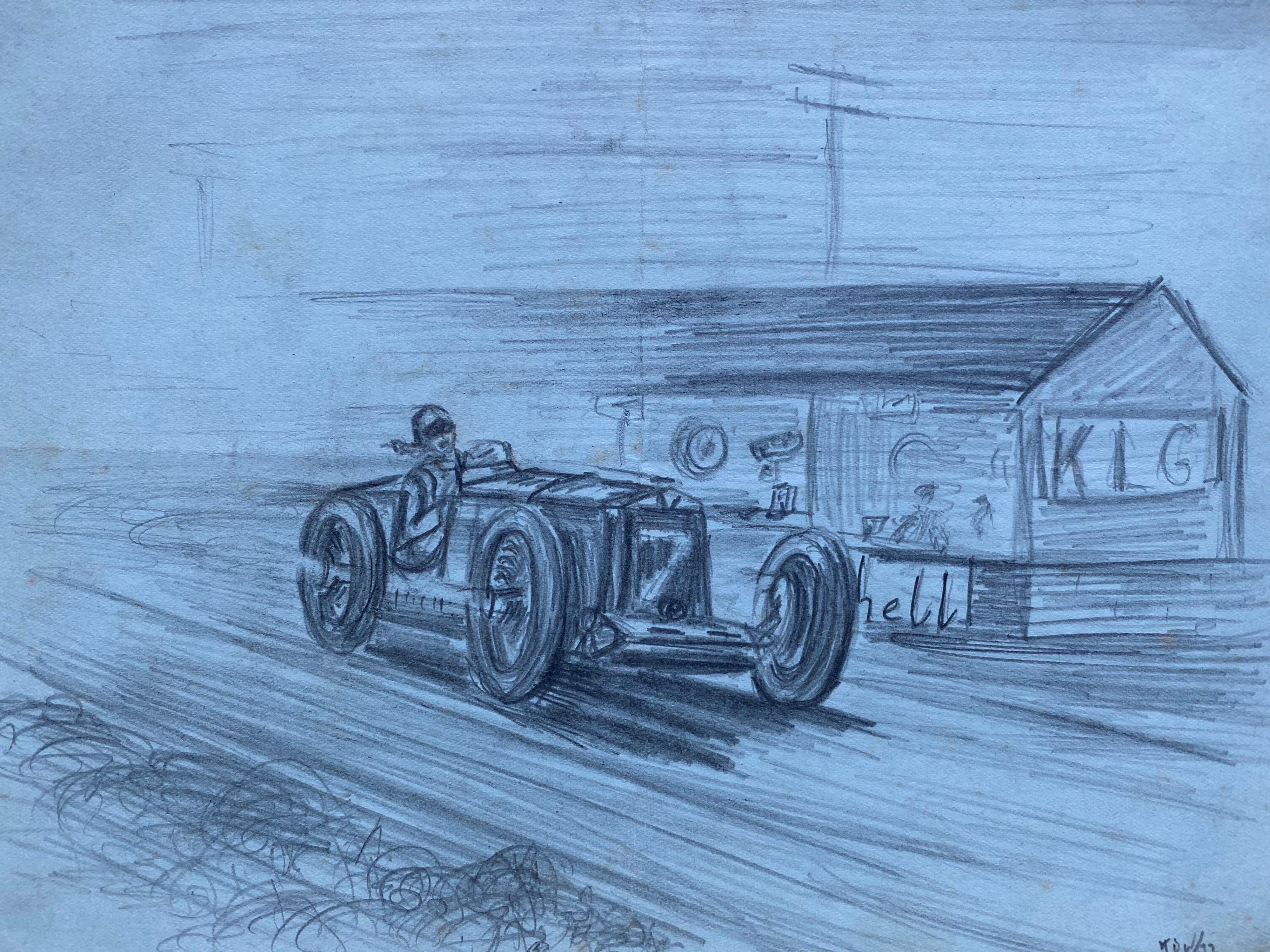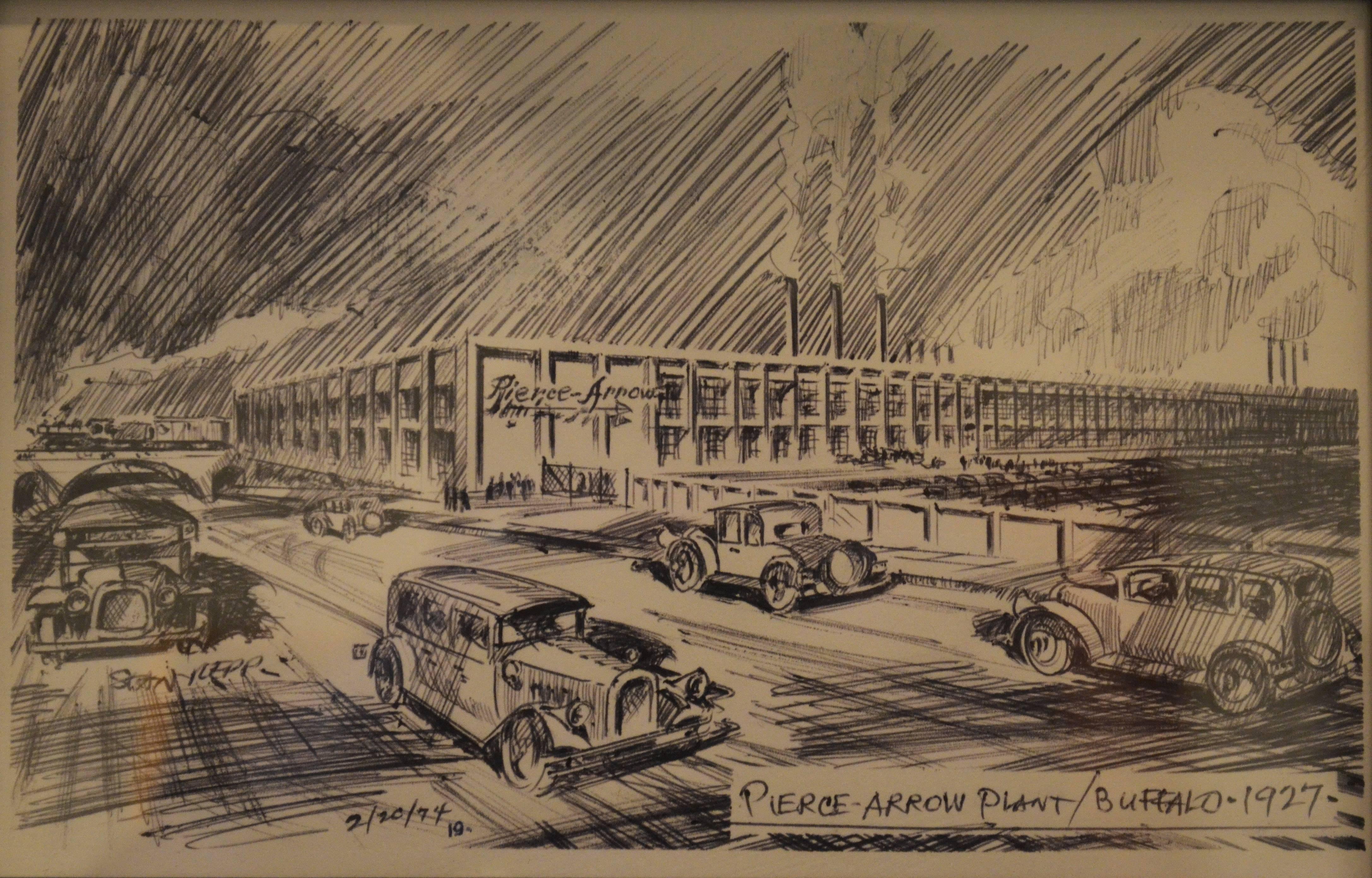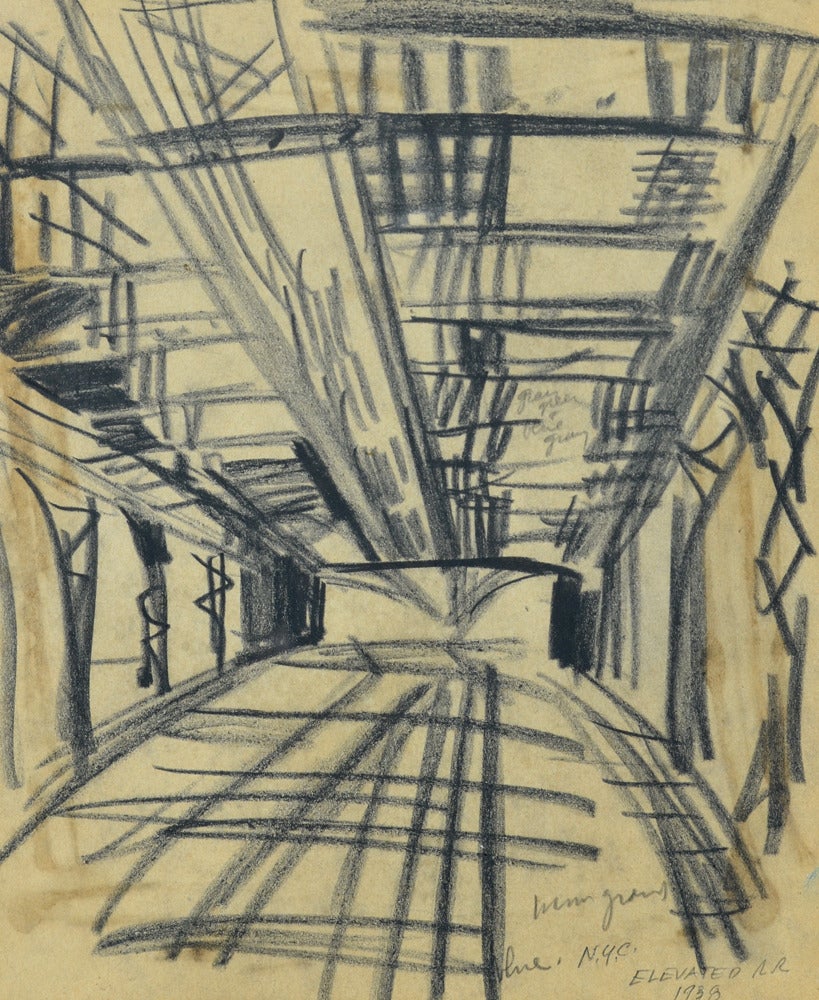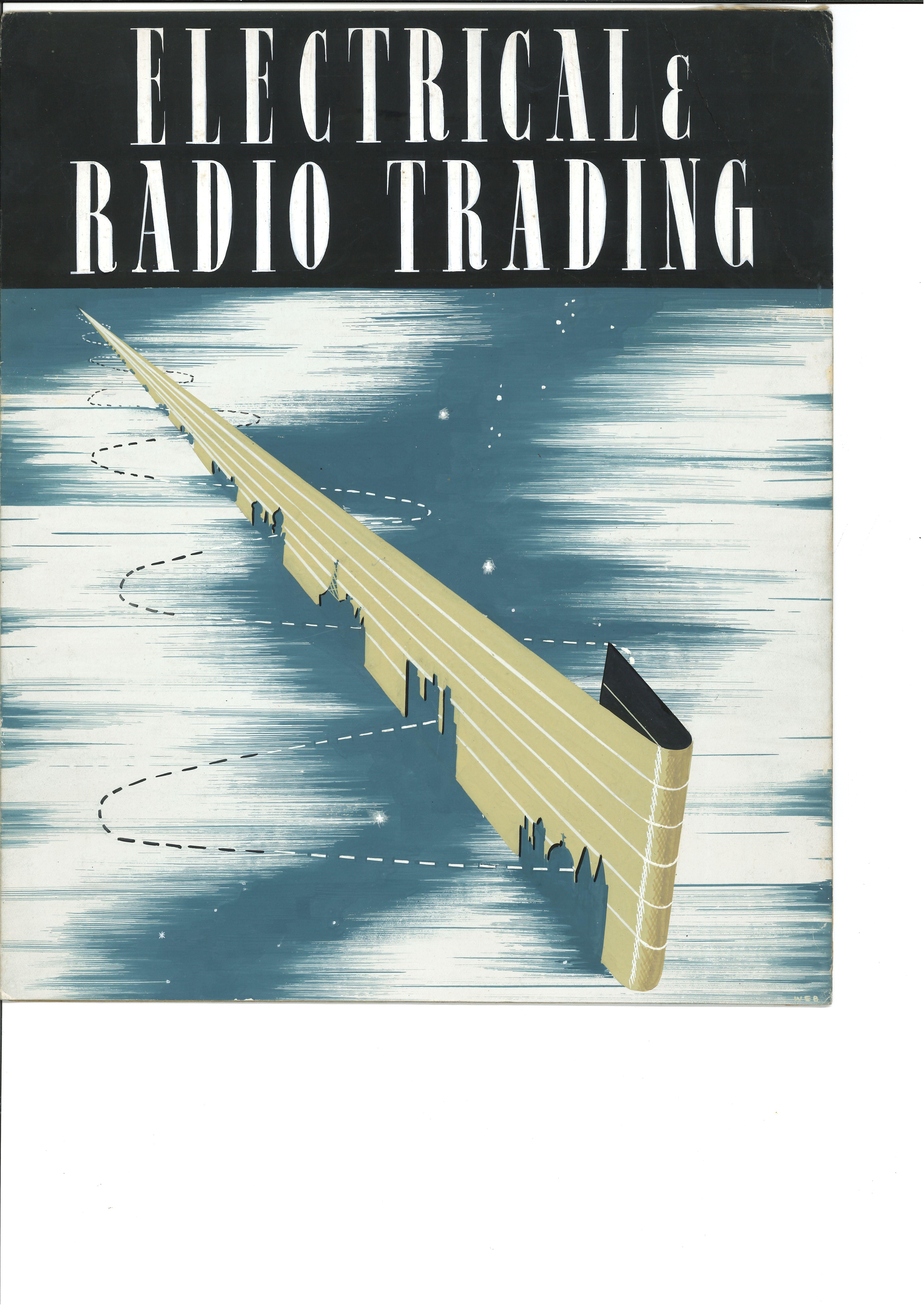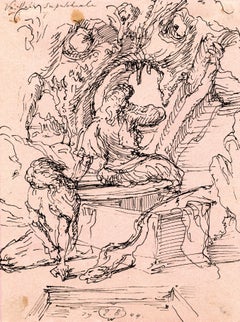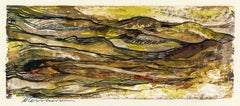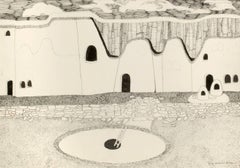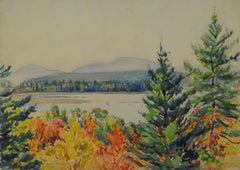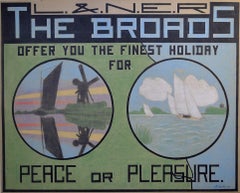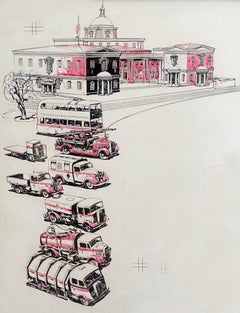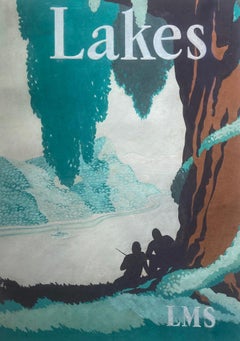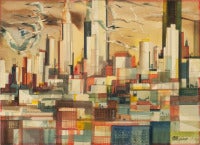
Sunset from a Train
View Similar Items
Want more images or videos?
Request additional images or videos from the seller
1 of 5
Viktor SchreckengostSunset from a Train1950
1950
About the Item
- Creator:Viktor Schreckengost (1906, American)
- Creation Year:1950
- Dimensions:Height: 22 in (55.88 cm)Width: 30 in (76.2 cm)
- Movement & Style:
- Condition:Original.
- Gallery Location:Fairlawn, OH
- Reference Number:Seller: FA86091stDibs: G130729140198
About the Seller
5.0
Recognized Seller
These prestigious sellers are industry leaders and represent the highest echelon for item quality and design.
Platinum Seller
Premium sellers with a 4.7+ rating and 24-hour response times
Established in 1978
1stDibs seller since 2013
787 sales on 1stDibs
Associations
International Fine Print Dealers Association
Authenticity Guarantee
In the unlikely event there’s an issue with an item’s authenticity, contact us within 1 year for a full refund. DetailsMoney-Back Guarantee
If your item is not as described, is damaged in transit, or does not arrive, contact us within 7 days for a full refund. Details24-Hour Cancellation
You have a 24-hour grace period in which to reconsider your purchase, with no questions asked.Vetted Professional Sellers
Our world-class sellers must adhere to strict standards for service and quality, maintaining the integrity of our listings.Price-Match Guarantee
If you find that a seller listed the same item for a lower price elsewhere, we’ll match it.Trusted Global Delivery
Our best-in-class carrier network provides specialized shipping options worldwide, including custom delivery.More From This Seller
View AllVeillee Sepulchrale; Verso: Study of two figures in a landscape
By Eugene Berman
Located in Fairlawn, OH
Veillee Sepulchrale
Verso: Study of two figures in a landscape
Pen and ink on rose colored Canson watermark paper, 1944
Signed in ink with the artist's initials lower center (see photo)
Dated 1944 lower center;
Titled in ink upper left corner (see photo)
Provenance:
Swann Galleries, 2010, realized $900.
John Popplestone (1928-2013), Akron, OH collector, noted psychologist and author
Berman brothers (painters)
From Wikipedia, the free encyclopedia
Jump to navigationJump to search
This article is about the painters. For the American songwriters/producers, see Berman Brothers (producers).
Eugene Berman in Italy in the 1960s
Eugène Berman (Russian: Евгений Густавович Берман; 4 November 1899, Saint Petersburg, Russia – 14 December 1972, Rome) and his brother Leonid Berman...
Category
1940s Surrealist Landscape Drawings and Watercolors
Materials
Ink, Pen
Mountainous Landscape, Mexico
Located in Fairlawn, OH
Mountainous Landscape, Mexico
Monotype in colors on heavy paper, c. 1960's
Signed in ink lower left "G Ceniceros"
Condition: Excellent
Image size: 6 x 14 1/2" (15.24 x 36.83cm)
Sheet size: 12 7/8 x 19 11/16 inches
Guillermo Ceniceros (born May 7, 1939) is a Mexican painter and muralist, best known for his mural work in Mexico City, as well as his figurative easel work. He began his mural painting career as an assistant to mural painters such as Federico Cantú, Luis Covarrubias and then David Alfaro Siqueiros who was a mentor and a key influence. Ceniceros is the most notable of Siqueiros' assistants. While he has experimented with abstract expression, his easel work mostly classifies as figurativism and is influenced by the geometrical construct of Mexican muralism. He has had over 300 individual and collective exhibitions in Mexico and the International stage. His work has been recognized by the Mexican Ministry of Culture and several of its institutions. He has painted over 20 large scale Mural Paintings with some of the most notable being the large scale work for the Legislative Palace of San Lazaro (Mexico's Legislative Building) as well as his murals in the Metro Subway System. He is a member of the Salón de la Plástica Mexicana. In 1995, the State of Durango, Ceniceros' native state, opened to the public the Guillermo Ceniceros Art Museum within the oversight of the Ministry of Culture. Ceniceros has been reviewed by notable critics such as Berta Taracena, Raquel Tibol, Alaide Foppa, Graciela Kartofel, José Angel Leyva and Eduardo Blackaller among others. There are several publications about his work including a vast review of his art life endeavors developed by the Ministries of Culture of Durango and Nuevo León. He is married to the artist Esther González and lives in his studio house in the Colonia Roma of Mexico City.
Life
Interview with the subject Ceniceros and Siqueiros
Ceniceros was born in a small village called El Salto, located in the municipality of Pueblo Nuevo in the Mexican state of Durango. His father was a woodworker who made toys and furniture in his workshop. His father's shop would become an influence in Ceniceros' life long interest in developing his own innovative working tools. When he was twelve the family moved to Monterrey to seek better economic opportunities. There he attended school and when he was fourteen he entered the Fabricación de Máquinas, S.A. (FAMA), a school/business, where he studied industrial drawing. He considers this early training important as it taught him the importance of geometry, use of space and materials. While at FAMA he met painters Gerardo Cantú and Ignacio Ortiz, and collaborated with them on sketches for publications of Alfonso Reyes, Pedro Garfias and other notable writers.
In 1955, he enrolled in the Taller de Artes Plásticas at the Universidad Autónoma de Nuevo León, graduating in 1958. At the Taller he met fellow Mexican artist Esther González, whom he married and with whom he has two children.
In 1962 he moved to Mexico City with the goal of working in the Taller of the Maestro David Alfaro Siqueiros. He became Siqueiros' first assistant working on his last murals while at the same time working at night on his easel painting work. Siqueiros supported Ceniceros decision to leave his Taller and supported him in his career until his death in 1974. By then Ceniceros was already a break thru artist having had several individual exhibitions including the prestigious Palacio De Bellas Artes as well as other recognitions. Thru the 70's and 80s Ceniceros continued his work with an emphasis on exhibits and exchanges abroad and traveling to Eastern Europe, Cuba, China, Chile, Ecuador, Italy and the United States. His Mexico City contemporaries and circle would include names that today have become reference such as Sebastian, José Luis Cuevas, Gilberto Aceves Navarro, Benjamin Dominguez, Gustavo Arias Murueta, Byron Galvez, Leonel Maciel among others. In the 70's his Row-House neighbors in the colonia Roma were Francisco Toledo and Alejandro Jodorowski.
His focus on mural painting is renewed in the mid 80's thru his large scale work in the Metro Subway System with him working on major commissions consistently and into the new century. While the Mexican school of Muralism had been challenged by the Ruptura members, the interest in Mural painting as a unique national form of expression continues.
He lives in Mexico City at a studio/home in the Colonia Roma. His home is a frequent gathering place for writers, poets, painters, singers, actors and journalists. He has a strong interest in Spanish language literature. Juan Rulfo...
Category
1960s Modern Landscape Drawings and Watercolors
Materials
Monotype
untitled (Pueblo)
By Virginia Dehn
Located in Fairlawn, OH
Untitled (Taos Pueblo)
Ink on paper, 1985-1990
Signed by the artist in ink lower right (see photo)
An early New Mexico period work, created shortly after the artist moved from New York.
Provenance: estate of the artist
Dehn Heirs
Condition: Excellent
Image/sheet size: 13 1/8 x 18 1/2 inches
Virginia Dehn
From Wikipedia, the free encyclopedia
Virginia Dehn
Virginia Dehn in her studio in Santa Fe
Virginia Dehn (née Engleman) (October 26, 1922 – July 28, 2005) was an American painter and printmaker. Her work was known for its interpretation of natural themes in almost abstract forms. She exhibited in shows and galleries throughout the U.S. Her paintings are included in many public collections.
Life
Dehn was born in Nevada, Missouri on October 26, 1922.] Raised in Hamden, Connecticut, she studied at Stephens College in Columbia, Missouri before moving to New York City. She met the artist Adolf Dehn while working at the Art Students League. They married in November 1947. The two artists worked side by side for many years, part of a group of artists who influenced the history of 20th century American art. Their Chelsea brownstone was a place where artists, writers, and intellectuals often gathered.
Early career
Virginia Dehn studied art at Stephens College in Missouri before continuing her art education at the Traphagen School of Design, and, later, the Art Students League, both located in New York City. In the mid-1940s while working at the Associated American Artists gallery, she met lithographer and watercolorist Adolf Dehn. Adolf was older than Virginia, and he already enjoyed a successful career as an artist. The two were married in 1947 in a private ceremony at Virginia's parents house in Wallingford, Connecticut.
Virginia and Adolf Dehn
The Dehns lived in a Chelsea brownstone on West 21st Street where they worked side by side. They often hosted gatherings of other influential artists and intellectuals of the 20th century. Among their closest friends were sculptor Federico Castellón and his wife Hilda; writer Sidney Alexander and his wife Frances; artists Sally and Milton Avery; Ferol and Bill Smith, also an artist; and Lily and Georges Schreiber, an artist and writer. Bob Steed and his wife Gittel, an anthropologist, were also good friends of the Dehns. According to friend Gretchen Marple Pracht, "Virginia was a glamorous and sophisticated hostess who welcomed visitors to their home and always invited a diverse crowd of guests..." Despite their active social life, the two were disciplined artists, working at their easels nearly daily and taking Saturdays to visit galleries and view new work.
The Dehns made annual trips to France to work on lithographs at the Atelier Desjobert in Paris. Virginia used a bamboo pen to draw directly on the stone for her lithographs, which often depicted trees or still lifes. The Dehns' other travels included visits to Key West, Colorado, Mexico, and countries such as Greece, Haiti, Afghanistan, and India.
Dehn's style of art differend greatly from that of her husband, though the two sometimes exhibited together. A friend of the couple remarked, "Adolf paints landscapes; Virginia paints inscapes." Virginia Dehn generally painted an interior vision based on her feelings for a subject, rather than a literal rendition of it.] Many of her paintings consist of several layers, with earlier layers showing through. She found inspiration in the Abstract Expressionism movement that dominated the New York and Paris art scenes in the 1950s. Some of her favorite artists included Adolf Gottileb, Rothko, William Baziotes, Pomodoro, and Antonio Tapies.
Dehn most often worked with bold, vibrant colors in large formats. Her subjects were not literal, but intuitive. She learned new techniques of lithography from her husband Adolf, and did her own prints. Texture was very important to her in her work. Her art was influenced by a variety of sources. In the late 1960s she came across a book that included photographs of organic patterns of life as revealed under a microscope. These images inspired her to change the direction of some of her paintings. Other influences on Dehn's art came from ancient and traditional arts of various cultures throughout the world, including Persian miniatures, illuminated manuscripts, Dutch still life painting, Asian art, ancient Egyptian artifacts...
Category
Early 20th Century American Modern Landscape Drawings and Watercolors
Materials
Ink
untitled (Maine Autumn Landscape across the narrows from Mt. Desert)
By Greta Allen
Located in Fairlawn, OH
untitled (Maine Autumn Landscape across the narrows from Mt. Desert)
Watercolor, 1945-1955
Signed by the artist lower left in pencil (see photo)
Provenance: Estate of the artist
Cond...
Category
1940s American Impressionist Landscape Drawings and Watercolors
Materials
Watercolor
Italian Cityscape
By Victoria Hutson Huntley
Located in Fairlawn, OH
Italian Cityscape
Pastel on Strathmore paper, 1968
Signed and dated lower right with the estate signature with the initials RH
Image size: 13 3/4 x 10 inches
Condition: Excellent
Pro...
Category
1960s Realist Landscape Drawings and Watercolors
Materials
Pastel
Irish Sea
By Edward Dobrotka
Located in Fairlawn, OH
Irish Sea
Watercolor, 1947
Signed and dated by the artist lower right
Condition: Excellent
Image/Sheet size: 12 x 18 inches
Provenance: Estate of the Artist
...
Category
1940s American Realist Landscape Drawings and Watercolors
Materials
Watercolor
You May Also Like
The Broads, 20th Century Original British Transport Poster
Located in London, GB
Pastel and watercolour, signed lower right
Image size: 24 ½ x 19 ½ inches (62 x 49.5 cm)
Art deco style hand made frame
Transport posters of the past created some of the most visua...
Category
1920s Art Deco Landscape Drawings and Watercolors
Materials
Pastel, Watercolor
Service Vehicles, 20th Century Art Deco Style Artwork
By Reginald Shuffrey
Located in London, GB
Coloured inks on paper
Image size: 18 x 14 inches (45.75 x 35.5 cm)
Modern handmade frame
Shuffrey was an important pre-war artist who did advertisements and worked for The Motor a...
Category
Mid-20th Century Art Deco Landscape Drawings and Watercolors
Materials
Ink
S.S. Arankola in Rangoon, Early 20th Century British Watercolour
By Frank Henry Mason
Located in London, GB
Frank Henry Mason
1875 – 1965
Steamship in Asia
Gouache on paper
Image size: 8 x 15 inches
Acid free mount and hand made gilt frame
Original artwork for a carriage print for steam...
Category
1930s Art Deco Landscape Drawings and Watercolors
Materials
Gouache
Lakes, English School 20th Century Art-Deco Gouache
Located in London, GB
English School
20th Century
Lakes
Gouache, initialled lower left
Image size: 20 x 14 inches
Framed
Category
20th Century Art Deco Landscape Drawings and Watercolors
Materials
Gouache
Somerset by Maxwell Fraser (original painting for book cover), British Art-Deco
By Leonard Cusden
Located in London, GB
Leonard Cusden
British
Flourished: 1920 - 1950
Somerset
Gouache, signed lower right
Image size: 17 ¾ x 27 inches
Contemporary oak gilt frame
This is the original painting used for the cover of the first edition for the novel "Someret" by Maxwell Fraser, published by The Great Western Railway...
Category
20th Century Art Deco Landscape Drawings and Watercolors
Materials
Gouache
Early 20th Century Cubist, Art Deco, View of a Factory in a Landscape, L'Usine
Located in Cotignac, FR
Early 20th century Cubist influenced watercolour on paper of a factory in a landscape by English artist E Corvin-Pearson. The painting is signed bottom right and marked ' 3 Guineas' ...
Category
Early 20th Century Art Deco Landscape Drawings and Watercolors
Materials
Paper, Watercolor, Gouache, Pencil
Recently Viewed
View AllMore Ways To Browse
Viktor Mayer
Cowboy Watercolor
English Cathedral Watercolors
King Charles Watercolour
18th Century Drawing Oil On Paper
Church Interior Watercolor
Grass Mat
Caroline Worsley
Orchid Watercolors
Winslow Homer Watercolors
Leopard Drawing
Vintage Cinderella
George Lodge
Laura Ashley Painting
Vintage Laura Ashley 1970s
Surfing Watercolor
Surfing Watercolour
Art Deco Horse Painting
